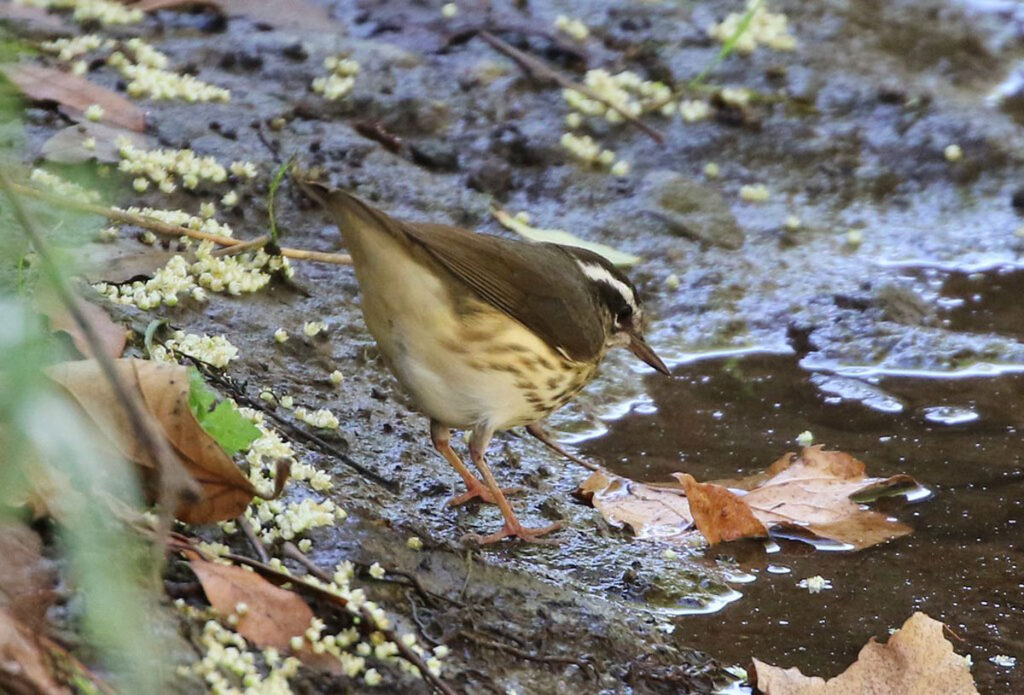Featured image credit: “Louisiana waterthrush” by foxtail_1 is marked with CC BY-NC-SA 2.0.
Just spotted two of these little birds hopping around the Middle Creek here for the first time this April. When I listened to a recording of their call, I was like, OH! I’ve definitely heard that before. I watched them hop down the creek bed, on rocks, and branches, making their little chip call. Then suddenly one of them dove at the edge of the water and got a large winged insect. Score! Good job, little Louisiana Waterthrush.
There is a similar bird with a slightly different call called a Northern Waterthrush, but that bird prefers standing and still water. This waterthrush comes to Virginia for the breeding season, and pops back to South America for the non-breeding season.
Reading up on this bird, I found that since these birds feed on “streambed (“benthic”) invertebrates, the species is an excellent indicator of the quality and health of a stream—or “stream ecosystem integrity.” (from allaboutbirds.org)
To hear songs, learn identification information, migratory patterns, and some fun facts, check out the Louisiana Waterthrush page offered by one of my favorite resources: the Cornell Lab of Ornithology »
“Louisiana Waterthrush” by tombenson76 is marked with CC BY-NC-ND 2.0.










